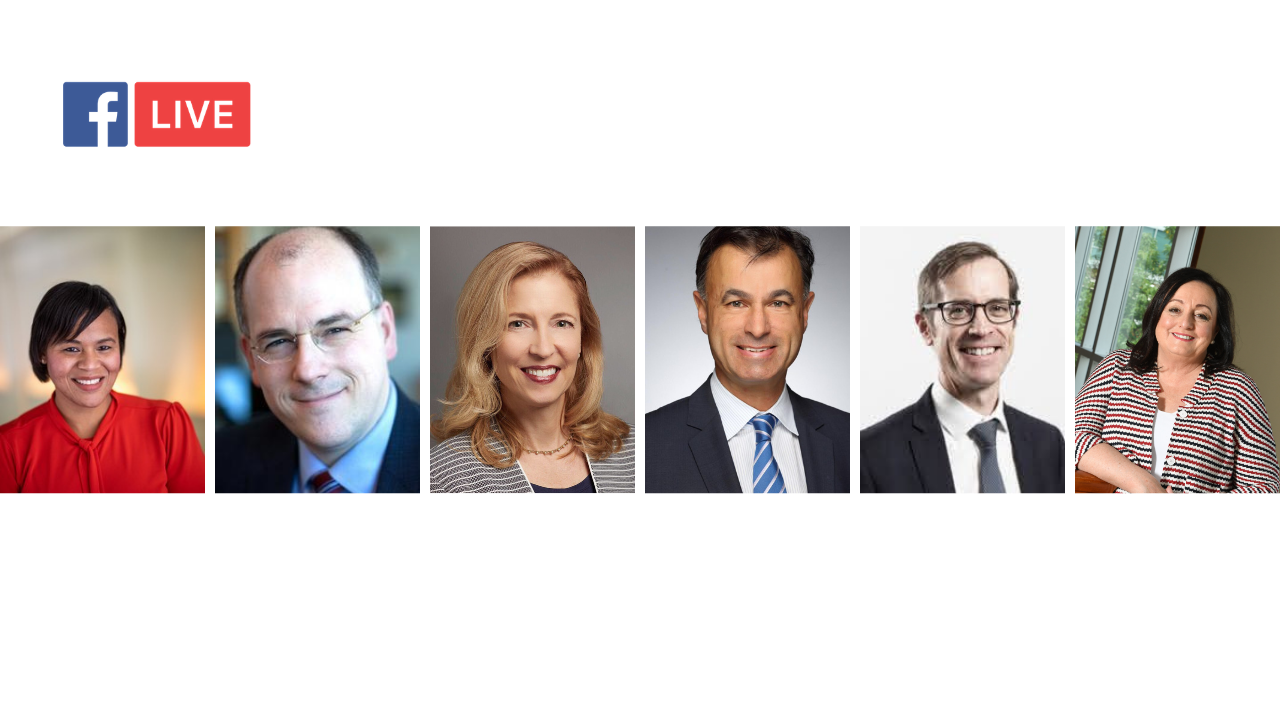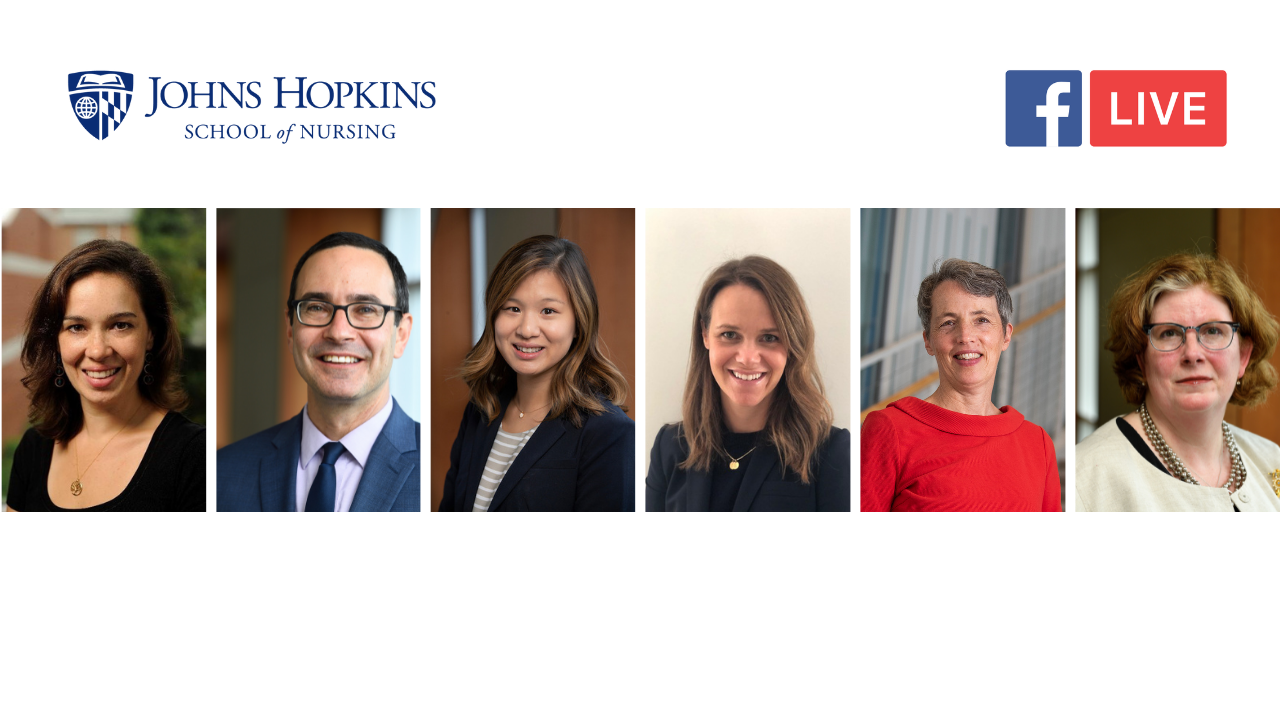COVID-19 has sent shock waves around the world devastating global economies, disrupting society and requiring pivoting and recalibration. Furthermore, it has has forced universities across the world to tackle online higher education, many for the first time, with some thriving and others faltering, and challenging the pedagogical skills of faculty and the expectations of students.
It has led many to consider the value proposition of universities as we know them and the role of higher education. Dr. Keshia Pollack Porter, Dr. Stephen Gange, Dr. Keith Martin, Dr. Ann Kurth, Dr. Theo Farrell and Dean Patricia Davidson (moderator) discuss the future of higher education and focus on how we address challenges and embrace opportunities for the good of individuals, nations, and societies.
Key takeaways
“We must incentivize innovation. In research, in methods for interacting with students in new ways. It’s essential,” says Dr. Stephen Gange.
“Students from low income communities are four times more likely to disengage from online learning. we must work to make sure were not exacerbating inequity,” says Dr. Theo Farrell.
“We must align research with real world problems. Research parks can be a place where academia, the private sector, government, and NGOs can collaborate to address current public challenges,” says Dr. Keith Martin.
“Universities can respond to health disparities through our scholarship and an increased focus on diversity in teaching and learning,” says Dr. Keshia Pollack Porter.
“We must address educational continuity globally, especially as climate change arrives,” says Dr. Ann Kurth.
About the panelists
Dr. Patricia Davidson is dean of the Johns Hopkins School of Nursing.
Dr. Keshia Pollack Porter is Professor of Health Policy & Management and Vice Dean for Faculty at the Johns Hopkins Bloomberg School of Public Health. Dr. Porter is well known for her research in creating safe and healthy environments for people to live and work, and has vast experience in engaging with policymakers at the local, state, and federal levels. In higher education, she has been recognized for her excellence in teaching, mentoring, and advising.
Dr. Stephen Gange is Executive Vice Provost for Academic Affairs at the Johns Hopkins University. He advances strategic academic priorities and initiatives and collaborates across the university with deans and leadership to enhance the educational experience through innovative teaching and learning. He has instructed many onsite and online methods courses to foster the innovation and modernization of introductory courses.
Dr. Keith Martin is CEO of the Consortium of Universities for Global Health. In his role, he supports academic institutions and other organizations around the world engaged in addressing global health challenges. He advocates the university’s role in transforming health across the globe. He has held portfolios in foreign affairs, health, the environment, defense, and international development and has been on many diplomatic missions in areas of crisis around the world.
Dr. Ann Kurth is Dean and the Linda Koch Lorimer Professor of Nursing at the Yale University School of Nursing. Dr. Kurth is an epidemiologist and clinically-trained nurse-midwife whose research focuses on HIV/sexual and reproductive health prevention, as well as on global health system strengthening. She was previously chair of the Consortium of Universities for Global Health, where she helped academic institutions and partners improve the wellbeing of people around the world through education, research, service, and advocacy.
Dr. Theo Farrell, Professor and Deputy Vice-Chancellor of Education at the University of Wollongong in Australia. Dr. Farrell is responsible for advancing innovation and assuring excellence in all aspects of curriculum design and delivery at the university. He leads capability development in digital and online learning, work-integrated learning, lifelong learning, and learning analytics. He has held a number of leadership positions in academia and has championed academic engagement with policy communities and the wider public.
Read more:
- Facebook Live: The Border is Here, The Crisis is Real for Our Children and the Time is Now
- Facebook Live Debunks the Myths on COVID-19

 Nurses Week, Nurses Everywhere
Nurses Week, Nurses Everywhere Facebook Live: The Future of In Person and Virtual Care
Facebook Live: The Future of In Person and Virtual Care Facebook Live: The Future of Implementation Science
Facebook Live: The Future of Implementation Science Community Involvement: Dispelling Myths, Providing Tips
Community Involvement: Dispelling Myths, Providing Tips On The Pulse: Heavy Reading
On The Pulse: Heavy Reading







